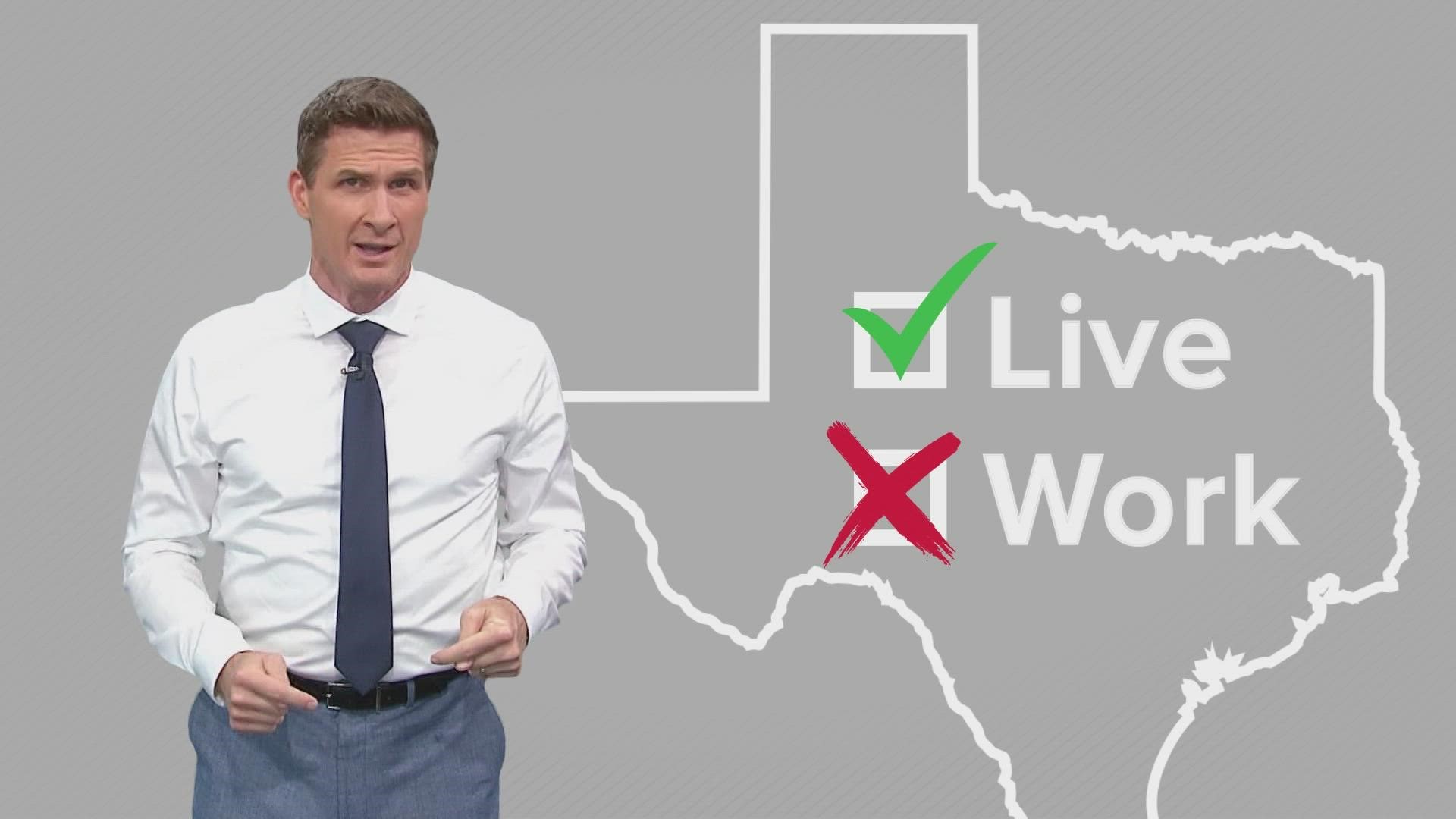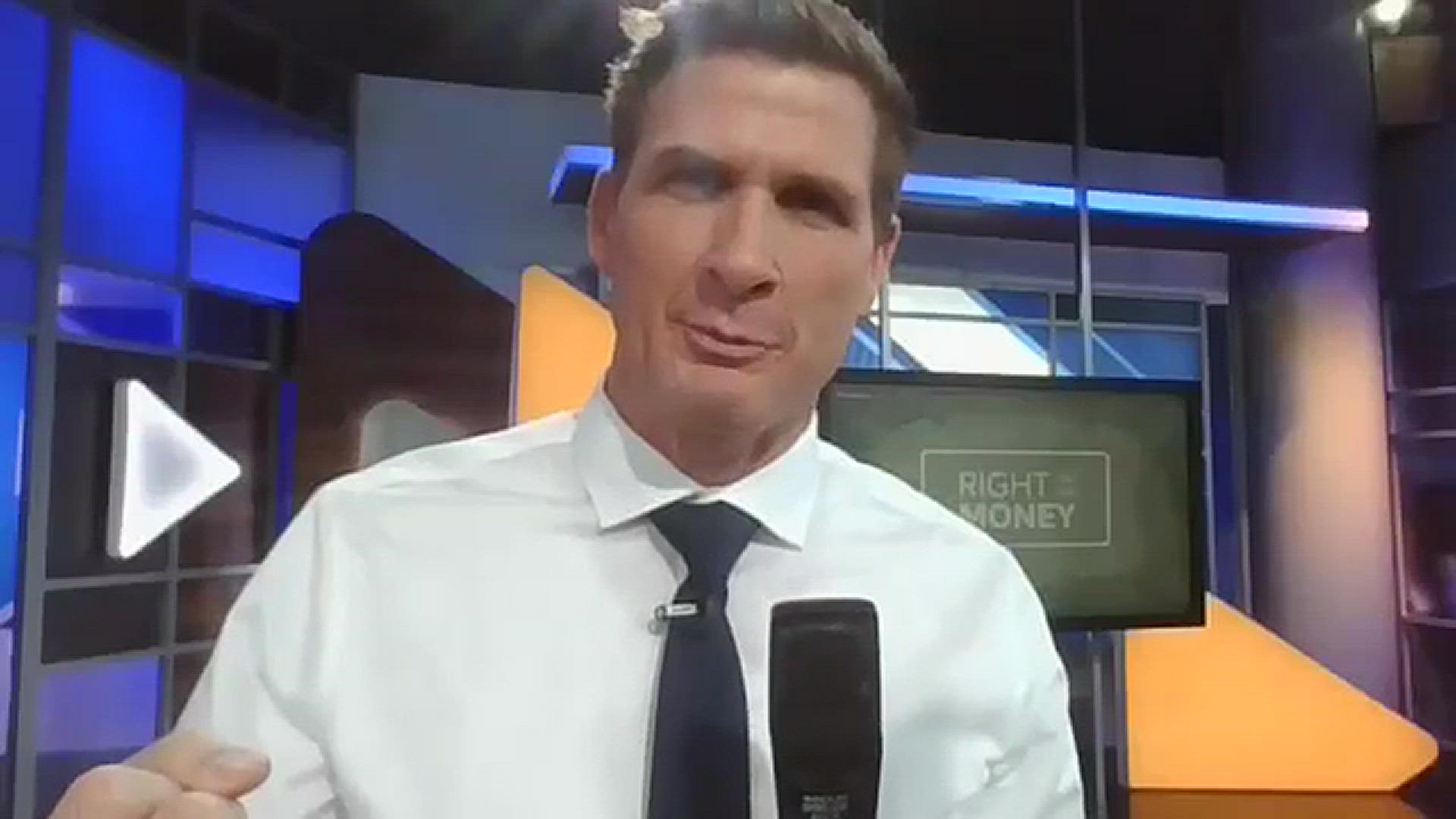It was already clear in August that Texas was a bright spot in the country as the American economy continued to rebound from the millions of jobs lost in the pandemic. LaborIQ by ThinkWhy estimates that of the 235,000 jobs added nationally in August, nearly 28,000 were in D-FW.
ThinkWhy’s September Jobs Report is now coming out, and it shows that Texas remains a job creation engine.
For September, the firm ranks D-FW as the top job-creating metro again. Austin is at number three on the list. The company lists Houston as the eighth largest job creating metro in September, and San Antonio comes in at number 24 nationally.
Austin recovers to pre-pandemic employment, Dallas and Houston to follow
The report finds that Austin has now recovered all pre-pandemic job losses and is now, “entering job expansion mode".
Chief Labor Market Analyst Jay Denton said, “Dallas will probably recapture all lost jobs by mid next year. Although, consider there are a lot of types of businesses like food stores…tech companies…they are already in expansion mode. Houston is a little bit more delayed, likely into 2023 mainly because of the oil and gas impact.”
Important takeaways for Texas workers, job seekers and employers
In the new report, Denton said there are takeaways for some Texas workers and job seekers, “You might start getting calls as an employee from businesses across the country because people are starving for talent."
Those who have jobs or are looking for jobs might also be heartened to hear this from Denton, “There is going to start to be more pressure on employers when it comes to wages."
That is part of the takeaway for Texas employers: With the labor market so tight (especially in the large metros), they may have to do even more now to attract and retain talent, “It is great that we are getting people back to work, but again the challenge is going to be on the retention side. So, focusing on compensation, or the culture, or whatever it is to keep employees…businesses are really going to have to focus on that specifically for the rest of this year.”
Denton said employers he has encountered are already using ThinkWhy’s tools to figure out how to measure the fast-changing labor market and make salary adjustments to stay competitive.
Denton also notes that rents and home prices have been soaring in many major Texas metros, and that companies located in the big cities are having to adjust salary offerings for a workforce that is having to pay a higher cost of living.
To companies who haven’t been as proactive on that front, Denton cautions, “I’d be more strategic in this place rather than waiting for an employee to give notice because their pay has been off."
Living in Texas but working in another state
ThinkWhy notes that we are seeing extraordinary changes in the way people work, specifically the flexibility to be remote and work in one state while living in another. Even though housing costs have risen dramatically in Texas, it is still relatively inexpensive to live in some large cities in the state compared to major metros in other states.
Might we see a lot more people opting to live in Texas while working remotely for companies in other states?
“That’s going to be the really interesting thing to watch”, said Denton, adding that companies will have to grapple with whether to continue to pay those workers the higher out-of-state salaries, or make a sort of based-in-Texas downward adjustment to their salaries.
Record number of available jobs. Where are all the workers?
Finally, the company is looking at where the workers have gone. The country has a record number of job openings, yet many of the workers who lost jobs in the pandemic haven’t returned to the workforce.
Denton said this is about more than just the now-expired extra unemployment benefits. He notes that many who are sitting out may have fears about COVID-19 or the requirement (or lack thereof) of vaccinations at individual businesses.
Also, Denton points out that for many it is a pandemic-inspired lifestyle change, “We’re…headed toward 600 days since the pandemic began…a lot of people have figured out how to work less or not work at all."


